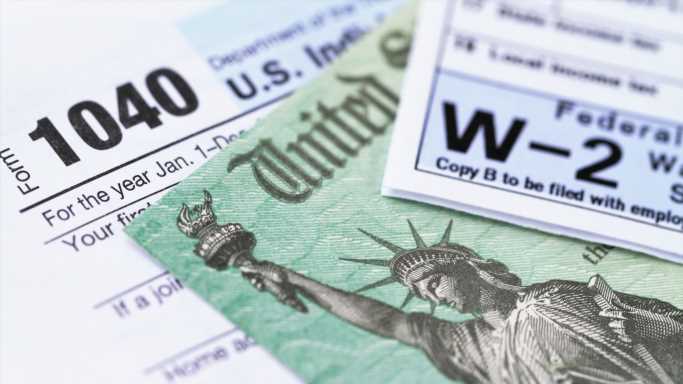Stimulus checks helped millions of Americans meet their financial needs over the past two years. Expectations for the coming year are that there will be a lower cash outflow for taxpayers in tax refunds. The IRS recently warned taxpayers that their tax refunds in 2023 could be smaller than this year’s payment.
Why Tax Refunds In 2023 Could Be Smaller
In general, tax refunds are available when taxpayers overpaid their taxes or withheld more than the amount they owe. This year many taxpayers received hefty refunds because, along with the tax refund, they also got the stimulus check and the child tax credit.
In 2023, however, tax refunds could be smaller than in 2022. This is because there were no federal stimulus checks issued in 2022 and most taxpayers already claimed their federal payments.
“Refunds may be smaller in 2023,” the IRS said in a November press release. “Taxpayers will not receive an additional stimulus payment with a 2023 tax refund because there were no economic impact payments for 2022.”
According to the IRS, the average refund for the 2022 filing season was $3,176 (as of October 28), compared to $2,791 in 2021.
Another reason tax refunds in 2023 could be smaller is that it will be harder to claim a deduction for charitable gifts on the 2022 return. Following the COVID-19 pandemic, Congress offered charities a tax incentive for cash gifts in 2020.
Lawmakers extended the same benefit for 2021 as well. However, the tax break wasn’t extended for 2022. It means that benefits for charitable gifts are no longer available to taxpayers if they are taking the standard deduction.
In 2021, the IRS allowed individuals to deduct $300 per person, or up to $600 per family, in charitable gifts if they didn’t itemize other deductions. Now, this benefit isn’t available anymore.
Should Taxpayers Be Concerned?
Smaller refunds could concern some taxpayers. A survey from LendingTree found that 46% of taxpayers in 2022 were relying on their refund to make a large purchase, save or investment it, or pay down debt.
Tax experts, however, say that people shouldn’t worry about smaller tax refunds in 2023 because they can still avail themselves of many other types of tax benefits, credits, and deductions that could help them to minimize their taxes, and in turn, get hefty refunds.
Separately, the IRS warned taxpayers that they should not expect to receive a 2022 tax refund “by a certain date.” Some filings could require “additional review,” and this could delay the process.
Usually, taxpayers who filed their returns electronically could expect a faster refund via direct deposit. However, if there are any issues or mistakes with the return, then the refund could be delayed.
According to the IRS, they had around 3.4 million unprocessed individual returns received in 2022 as of November 18. Of these, 1.7 million require error correction and the remaining are paper filings.
This article originally appeared on ValueWalk
Sponsored: Find a Qualified Financial Advisor
Finding a qualified financial advisor doesn’t have to be hard. SmartAsset’s free tool matches you with up to 3 fiduciary financial advisors in your area in 5 minutes. Each advisor has been vetted by SmartAsset and is held to a fiduciary standard to act in your best interests. If you’re ready to be matched with local advisors that can help you achieve your financial goals, get started now.
Source: Read Full Article
-
Surprise Stimulus Check From Pennsylvania Hitting Bank Accounts Now
-
Powell Says Fed 'Will Not Hesitate' To Resume Raising Interest Rates
-
The US just plunged into a recession. Or maybe it didn’t
-
Use it or lose it: Making the most of your health insurance is more important than ever
-
Carl Zeiss Meditec Q2 Profit, Orders Down, Cuts FY23 Outlook; Stock Dips

